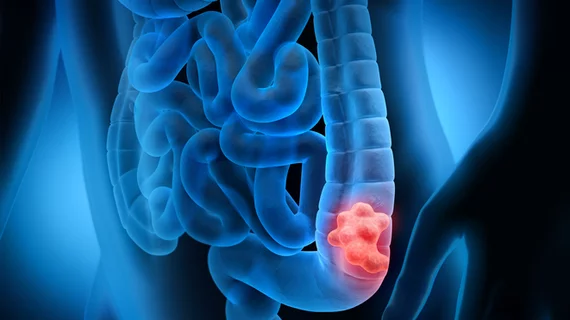Young adults with metabolic syndrome face a heightened risk of colorectal cancer
Young adults with metabolic syndrome are at an increased risk of colorectal cancer (CRC), according to new data published in The American Journal of Cardiology.
Long recognized as a risk factor for cardiovascular disease, metabolic syndrome is also linked with CRC in middle-aged and older adults. That association is not as clear in younger adults under the age of 50.
To learn more, researchers performed a retrospective analysis of 902,599 adults between the ages of 20 and 49 years old. All data came from the JMDC Claims Database, and patients received care from January 2005 to August 2018. Fifty-five percent of patients were men, and the median age was 21 years old. The primary outcome was defined as CRC of any stage. Participants who had a history of CRC, colorectal polyps, or inflammatory bowel disease were excluded from the study.
Metabolic syndrome was observed in 58,561 participants (6.5%).
Overall, participants with metabolic syndrome tended to be older, more likely to be men, obese, smokers, and habitual drinkers. In addition, physical inactivity was more prevalent among participants with metabolic syndrome versus than those without it.
In the study, participants were categorized into two groups according to the absence or presence of metabolic syndrome. During a median follow-up of more than 1,000 days, a total of 1,884 CRC events occurred. The risk of one of these events was higher for a participants with metabolic syndrome.
High blood pressure, and high blood glucose were also associated with incident CRC, but high waist circumference and dyslipidemia were not.
The study's authors noted that their study has certain clinical implications.
“Given that the prevalence of CRC is steadily increasing in young adults and CRC is a major cause of cancer deaths of young adults, it is required to identify the determinants of CRC and to enable early detection of CRC among young adults," wrote first author Takahiro Jimba, MD, of the department of cardiovascular medicine at the University of Tokyo, and colleagues. "From this point of view, these results suggest that assessment of metabolic syndrome could identify younger individuals who would be at high risk for subsequent CRC."
More research is still needed, the team concluded, to assess if routine CRC screening would be beneficial for younger adults with metabolic syndrome.
Read the full study here.
